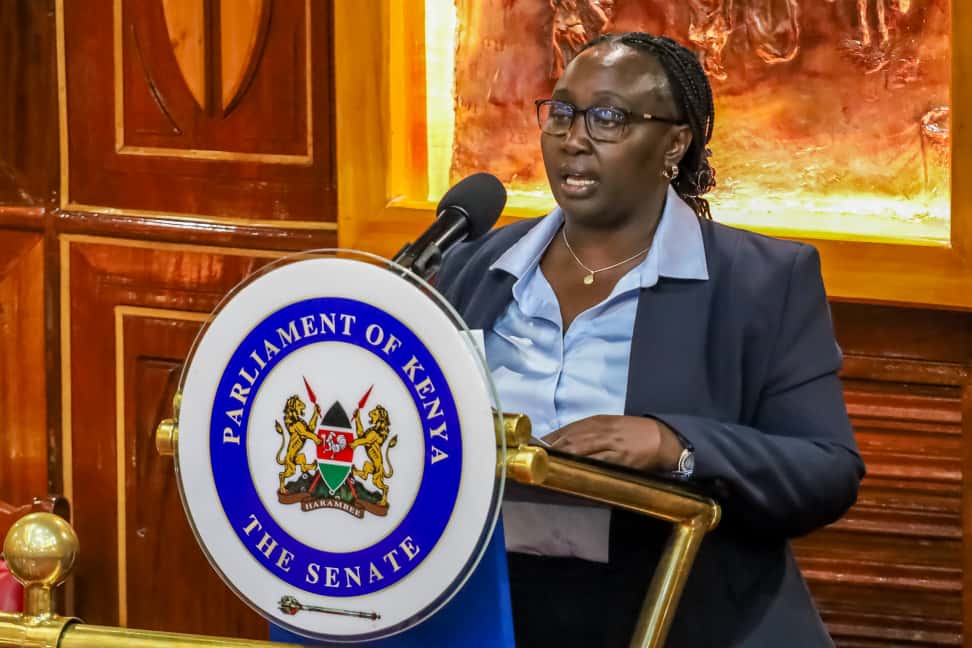Government to reunite 44,000 children in private orphanages with their families by 2032

CS Cheptumo said the ministry conducted a census of street children and found that they include both Kenyan and foreign nationals. The findings will help identify which children can return to their families and which require rehabilitation services.
At least 44,000 children living in private orphanages and children’s homes across Kenya are set to return to their families over the next decade, the government has confirmed.
Gender and Children Services Cabinet Secretary Hanna Cheptumo told the Senate on Wednesday that the initiative will take place gradually, with careful oversight to ensure the children’s safety and proper adjustment to family life.
More To Read
- Senate targets KEMSA in plan to turn devolved institutions into executive agencies
- Senate convenes special sitting to hear Governor Nyaribo’s impeachment charges
- Senate summons Isiolo, Kericho governors for skipping audit hearings
- Governance Committee orders mandatory audit attendance for university heads
- President Ruto to deliver State of the Nation address on November 20
- Senate urges swift action on Kenyans stranded in Russia, gender violence, mental health, and illegal construction
“We have a strategy through the national care reforms to transition all of the children to their families by 2032. It is going to be done slowly because we cannot send children to places not properly inspected,” Cheptumo said.
“We will do the transition progressively as we monitor how the children are adjusting so that we don’t have a backlash of releasing the children back to their families, and then we get issues of violence and mistreatment that come with people who have never lived with children for a long time,” she added.
Her remarks came after nominated Senator George Mbugua sought clarity on the government’s plan to phase out children’s homes in favour of a home-care-based model.
“What is the current status of the plan, and how many cases of child abuse have been reported in the homes?” he asked.
The government earlier indicated it would close all privately managed children’s institutions as part of wider reforms aimed at promoting family and community-centred care.
Data from the National Council for Children's Services shows 902 charitable institutions house around 44,070 children, while 30 statutory facilities accommodate 1,443 children.
Nominated Senator Esther Okenyuri also raised concerns about children living on the streets, particularly in Nairobi, many of whom are involved in child labour.
“There is an increase in the number of children on the streets, especially in Nairobi, where some are involved in child labour. What is the government doing to either rehabilitate or reintegrate the children?” she asked.
CS Cheptumo said the ministry conducted a census of street children and found that they include both Kenyan and foreign nationals. The findings will help identify which children can return to their families and which require rehabilitation services.
“These children are not only Kenyans; there are also foreigners. We are reaching out to other member states of East Africa to ensure all the children are reintegrated with their families. The census will inform us where they have come from,” she said.
The government emphasised that the phased plan will ensure children are reintegrated safely and that family and community-based care becomes the primary approach to supporting vulnerable children in the country.
Top Stories Today













































